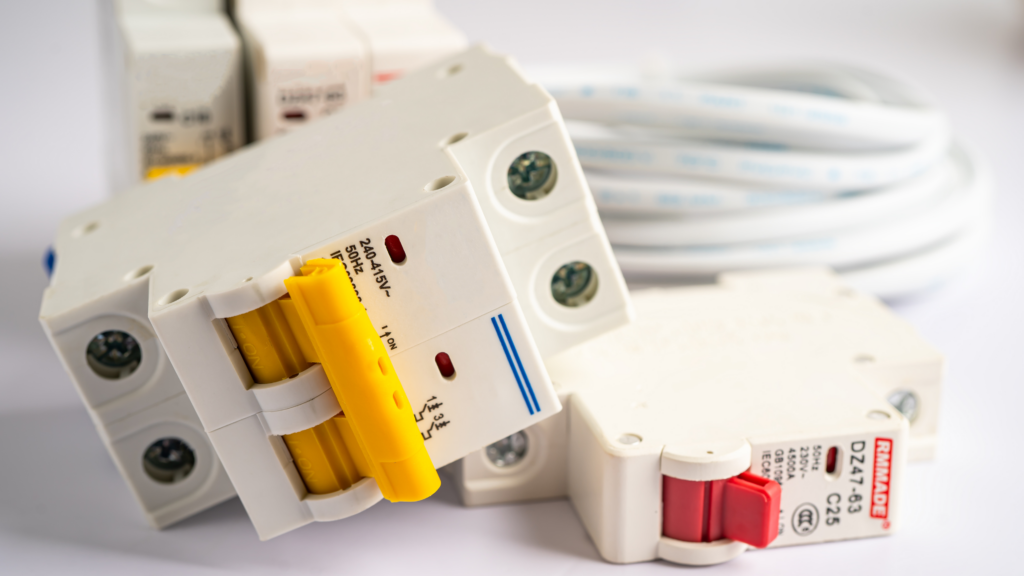Exploring Different Types of Circuit Breakers

Circuit breakers are the unsung heroes of our electrical systems, safeguarding our homes and businesses by interrupting the flow of electricity when needed. Understanding the various types of circuit breakers is crucial for both homeowners and electricians.
In this blog article, we explore the diverse world of circuit breakers, shedding light on their types, functions, and applications. Take a look!
Standard Circuit Breakers
Standard circuit breakers are the most common type found in residential and commercial installations. They come in various amp ratings and are designed to protect general circuits. These breakers trip when the current exceeds a predetermined limit, preventing overloads and potential electrical fires. They are suitable for lighting circuits, outlets, and smaller appliances.
GFCI (Ground Fault Circuit Interrupter) Breakers
GFCI breakers are essential for areas where water is present, such as kitchens, bathrooms, and outdoor outlets. They detect imbalances in electrical currents, indicating a potential ground fault. When such imbalances are detected, the GFCI breaker interrupts the circuit, minimizing the risk of electric shock. GFCI breakers are a critical component in enhancing electrical safety in damp environments.
AFCI (Arc Fault Circuit Interrupter) Breakers
AFCI breakers are designed to detect and mitigate electrical arcs, which can lead to fires. These breakers are particularly crucial in bedrooms and living spaces where electrical cords and devices are prevalent. By swiftly interrupting the circuit upon detecting an arc, AFCI breakers significantly reduce the risk of electrical fires caused by arcing faults.
Dual-Function Circuit Breakers
Dual-function breakers combine the features of GFCI and AFCI protection in a single unit. These breakers are versatile and provide enhanced safety in areas where both ground fault and arc fault protection are necessary, such as bedrooms, living rooms, and kitchens. Installing dual-function breakers simplifies the electrical panel while maximizing safety.
Miniature Circuit Breakers (MCBs)
MCBs are commonly used in low-voltage electrical systems to protect against short circuits and overloads. These breakers are compact and are often found in residential and commercial distribution boards. MCBs are available in various amp ratings and trip characteristics, allowing for precise protection based on the connected load.
Residual Current Circuit Breakers with Overcurrent Protection (RCBOs)
RCBOs combine the features of GFCI, AFCI, and MCBs into a single unit. These breakers offer comprehensive protection against ground faults, arc faults, short circuits, and overloads. RCBOs are particularly useful in applications where individual protection for each circuit is desired, such as in residential wiring systems.
Choosing the right type of circuit breaker for your electrical system is crucial for ensuring safety and reliability. From standard circuit breakers to specialized GFCI, AFCI, dual-function breakers, and beyond, each type plays a unique role in protecting against specific electrical hazards. As technology advances, circuit breakers continue to evolve, providing enhanced safety features for our ever-expanding electrical needs.
Whether you’re a homeowner or a professional electrician, staying informed about the different types of circuit breakers empowers you to make informed decisions and create a secure electrical infrastructure.
If you’re interested in working with Countryside Electric, click here to request a free quote!

